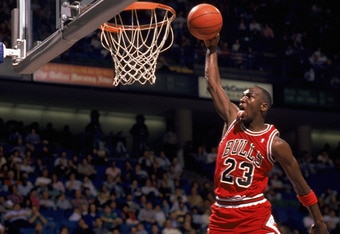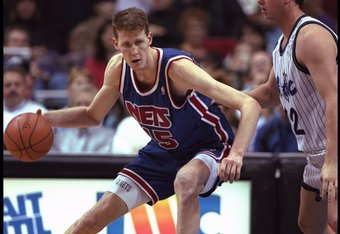As the San Antonio Spurs take a commanding 2-0 lead in the Western Conference Finals, continuing their historic stretch of late-season/post-season NBA dominance, there has been a lot of talk about why this team has flown under the radar over the last fifteen or so seasons despite their incredible success.
It is a perplexing phenomenon. Americans claim to value hard work, loyalty and sustained achievement over flashy drama queens and purchased success. If this were in fact true, the Spurs would be among the most widely loved teams in professional sports, while teams like the Miami Heat would be uniformly despised.
As we all know, the Heat are in fact despised, but being despised in professional sports is second only to being adored as the two usually go hand-in-hand (see: New England Patriots, Dallas Cowboys, New York Yankees and Boston Red Sox). Perhaps the very worst reaction for a team to elicit is“eh.â€
The San Antonio Spurs are the quintessential “eh†team in American sportsâ€"neither loved nor hated, but simply ignored by the media and fans alike. But why?
There are a number of fantastic articles floating around the interwebs on this subject. Matthew Yglesias recently published an excellent piece at Slate.com (“The Most Ignored Dynasty in Sportsâ€) which brings up numerous hypotheses.
There are the usual suspectsâ€"“boring†on-court play, San Antonio’s relatively small-market, the lack of giant personalities and off-court drama that so-easily captures the American imagination and 24 hour news cycle. And, as Yglesias concedes, there is an element of truth to all of these but they fail to answer the question completely.
The Spurs had the second highest-scoring offense in the NBA this seasonâ€"a far stretch from the slow-pace often attributed to them. While San Antonio is not New York or L.A., it is much larger than, say, Oklahoma City, where the team’s national popularity is a far cry from under-appreciated.
Yglesias’s argument is that there are two main reasons for the Spurs’ popularity deficiency. First, they lack players who dunk. Tim Duncan is the only exception, and I’m pretty sure during his “monster†jam over Serge Ibaka last night he actually managed to jump down. Yglesias is right about this.
His concluded other reason is the lack of off-court dramaâ€"contract disputes, personality conflicts, etc. But what Yglesias and so many others fail to take into account is something both obvious and controversial. It is a delicate subject that we as Americans have yet to figure out how to discuss publicly without throwing chairs at one anotherâ€"race.
 Getty Images/Getty Images
Getty Images/Getty Images
Anyone who has come of age over the last thirty or so years has witnessed what I consider to be a fundamental reality of our times. Though racism is still prevalent in American culture, the standards and trends of what constitutes “cool†among our nation’s youth is almost entirely determined by young black men.
In the nineties it was the rise of hip-hop and the formation of the most successful (and revolutionary) alliance between the marketplace and sports cultureâ€"Nike’s Air Jordan campaign. I grew up in the nineties as a white boy in small town Iowa, and can attest that despite the presence of only two black kids in my entire elementary school, it was cool to wear baggy clothes, Nike apparel and jerseysâ€"Jordan, Grant Hill, Penny Hardaway, Shaq, Alonzo Mourning, Scottie Pippen and Nick Van Exel (you read that right).
My dad once surprised me at Christmas with a Shawn Bradley jersey, thinking the combination of my favorite style of clothing with my first name on the back was a can’t-miss gift. What my dad failed to understand (parent’s just don’t, you know) is that I wouldn’t be caught dead in a Shawn Bradley jersey. I never even tried it on.
This assertion that young black men are the trendsetters in American youth culture, is based admittedly on anecdotal evidence. I don’t mean to suggest that, therefore, black men are no longer being subjected to racial discrimination. Unfortunately, that is just not true.
But what is true is that even in an almost entirely white school in a town without a single stoplight, we all looked up to young, black athletes as our idols. We didn’t look up to them because they were black, but they were nonetheless. And today things are not much different. Though the hardcore gangster rap of the nineties has largely passed and Nike isn’t the only brand being worn by American youths, it is still very much the case that the cultural icons of America’s youth are often young, black men.
 Getty Images/Getty Images
Getty Images/Getty Images
I believe that all of the reasons listed above for the Spurs’ lack of popularity are valid, partial pieces to the underlying question. I also believe that the racial component is essential if we want to fully understand why nobody outside of central Texas cheers for them. Two of their three stars are foreign. And while Tony Parker is half-black, he is also French which is way, way uncool.
While on the court, Parker and Manu Ginobili can more than hold their own against the likes of Kevin Durant, Russell Westbrook and James Harden. The same cannot be said for the players off the court in the minds of NBA fans (Harden’s beard provides a distinct advantage that is probably unfair).
Whether the fans themselves are black or white or any other race doesn’t seem to matter. Black men are just cooler. Especially when icons like Lebron James, Kobe Bryant, Dwayne Wade, Dwight Howard and Derrick Rose are taken into account, it is really not that hard to understand why nobody cares about what’s going on in San Antonio.
Tim Duncan, the centerpiece of the franchise throughout its dominance, is a black man. But he doesn’t play like a black man. He is best known for his “fundamentals,"â€"the word every kid on the playground just loves to hear. He isn’t flashy. He shoots bank shots (not cool) and rarely dunks.
Not only does he play like a white guy, he talks like one too. I am not trying to diminish Mr. Duncan here or suggest that he has a definitively white style of playing/living that is clearly distinct from the black style. I am making generalizations which are always problematic. But political correctness aside, it's just true.
The San Antonio Spurs are the whitest team in the NBA, not just in terms of skin color (though that too) but in style both on and off the court. And let’s face itâ€"white culture is pretty damn boring. So are white sports.
 Gregory Shamus/Getty Images
Gregory Shamus/Getty Images
It would be easy to interpret this argument incorrectly, thinking that I am suggesting that the Spurs are the victims of some kind of reverse-racism. That is not-at-all my point. I am simply suggesting that, for better or worse, in American cultural currency (especially among the youth and even more so in sports culture) black is just cooler than white. And the Spurs, no matter how many banners may hang from their rafters, will never be cool.
[I would also like to recommend, for a further (and a more nuanced) reading on the topic, the anthology edited by Rebecca Walker “Black Cool: One Thousand Streams of Blackness,†as well as the phenomenal article about the recent trend in NBA style wherein black athletes dress like white nerdsâ€" “The Rise of the NBA Nerd†at Grantland.com by Wesley Morris.]
No comments:
Post a Comment